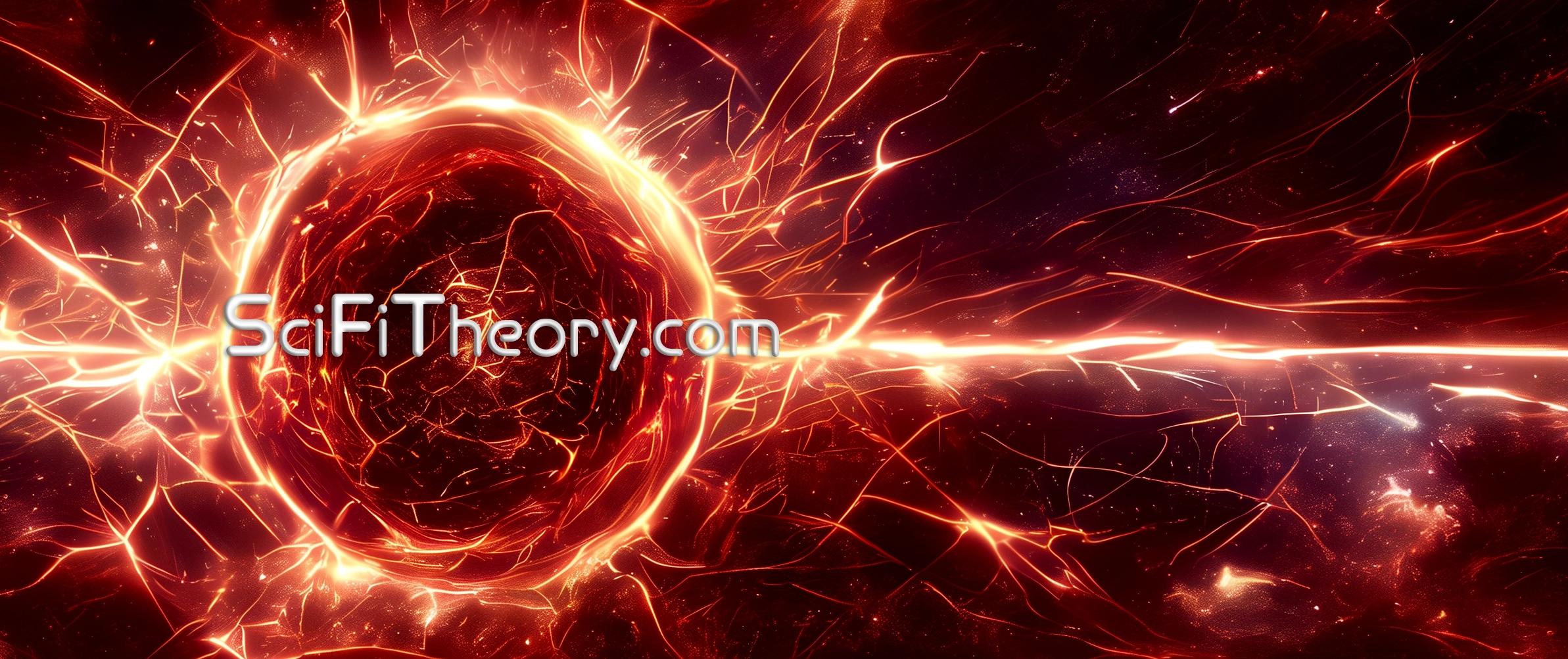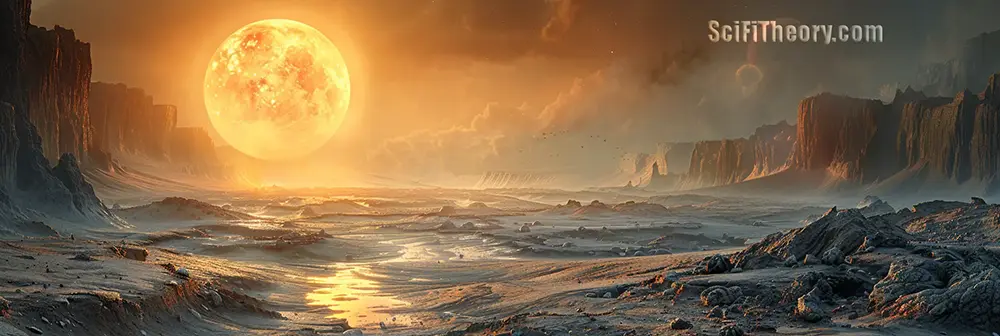Definitions
Science fiction, commonly known as sci-fi, is a genre of speculative fiction that delves into imaginative and futuristic ideas, often rooted in scientific principles and technological advancements. It explores potential scenarios and innovations that, while not yet real, are grounded in scientific plausibility. Sci-fi distinguishes itself from fantasy by relying on possible scientific and technological developments rather than magical or supernatural elements. Sci-fi’s narrative framework often includes advanced technologies, space exploration, time travel, parallel universes, and extraterrestrial life. These elements allow authors to examine the human condition, societal structures, and ethical dilemmas in contexts beyond our current reality. The genre serves as a sandbox for exploring the impact of science and technology on individuals and societies, posing questions about the future of humanity.
A hallmark of science fiction is its foundation in scientific theory and speculative advancements. Writers often extrapolate current scientific knowledge to envision future possibilities. For example, Isaac Asimov’s “Foundation” series explores the implications of psychohistory, a fictional science that combines history, sociology, and statistical mathematics to predict the future of large populations. Similarly, Arthur C. Clarke’s “2001: A Space Odyssey” delves into artificial intelligence and space exploration, reflecting contemporary scientific interests and projecting them into the future.
Science fiction also addresses social and ethical issues, using futuristic settings as a backdrop to explore contemporary problems. Margaret Atwood’s “The Handmaid’s Tale,” while often categorized as dystopian, incorporates speculative elements to critique issues of gender and power. The genre’s capacity to blend the imaginative with the possible allows for a unique exploration of human nature and societal dynamics. In terms of subgenres, science fiction encompasses a broad spectrum, including hard sci-fi, which emphasizes scientific accuracy and technical detail, and soft sci-fi, which focuses more on the social sciences, including psychology, sociology, and anthropology. Cyberpunk, a subgenre characterized by advanced cybernetics and dystopian futures, exemplifies the genre’s versatility in addressing both technological and societal themes.
Science fiction is a versatile and expansive genre that leverages scientific principles and technological speculation to explore the potential futures of humanity, offering both entertainment and profound insights into the possible trajectories of our world. Science fiction examines the potential consequences of scientific and technological progress on society and individuals. This genre delves into themes such as space exploration, time travel, parallel universes, and interactions with extraterrestrial life, providing a vision of the future influenced by present-day scientific understanding and speculative scenarios.
Space exploration in science fiction often explores humanity’s quest to discover new worlds, understand the cosmos, and confront the unknown. It reflects our curiosity and drive to push the boundaries of what is known. Works like Arthur C. Clarke’s “Rendezvous with Rama” and Kim Stanley Robinson’s “Mars Trilogy” imagine detailed and scientifically grounded accounts of space travel and colonization, presenting challenges and triumphs that mirror potential future endeavors.
Time travel is another prevalent theme, allowing characters to journey to different eras, thereby exploring the implications of altering history or experiencing future events. H.G. Wells’ “The Time Machine” is a classic example, where the protagonist travels far into the future, witnessing the evolution and ultimate fate of humanity. Time travel narratives often examine the complexities of cause and effect, free will, and the nature of time itself.
Parallel universes and alternate realities expand the boundaries of possibility, proposing that countless versions of our world exist simultaneously. This theme opens up explorations of “what if” scenarios, where different choices or events lead to vastly different outcomes. Philip K. Dick’s “The Man in the High Castle” imagines a world where the Axis powers won World War II, exploring the political and social ramifications of this alternate history.
Interaction with extraterrestrial life forms is a staple of science fiction, addressing humanity’s place in the universe and the potential for communication, conflict, or cooperation with alien species. Stories like Carl Sagan’s “Contact” and Orson Scott Card’s “Ender’s Game” probe the complexities of first contact, the potential for mutual understanding, and the existential questions such encounters would raise.
Science fiction often serves as a mirror, reflecting current scientific theories and ethical concerns while projecting them into speculative futures. It challenges readers to think critically about the direction of technological advancement and its potential impact on human society. Through its imaginative narratives, science fiction encourages exploration of philosophical questions about identity, morality, and the future of our species, making it a profound and enduring genre.
Science fiction has been called the “literature of ideas” because it not only entertains but also challenges readers to consider the implications of scientific discoveries and technological changes. The genre serves as a platform to critique contemporary societal issues and explore alternative realities and futures, inspiring a sense of wonder and curiosity about the universe and our place within it. One of the defining characteristics of science fiction is its ability to pose “what if” questions, prompting readers to think about the potential outcomes of current trends in science and technology. This speculative nature allows authors to address complex topics such as artificial intelligence, genetic engineering, environmental degradation, and space colonization, often highlighting the ethical and moral dilemmas these advancements might entail. For instance, Isaac Asimov’s “I, Robot” explores the Three Laws of Robotics and the potential consequences of creating intelligent machines, raising questions about autonomy, ethics, and the essence of humanity.
Science fiction also functions as a form of social commentary, using futuristic or alternative settings to examine and critique contemporary issues. George Orwell’s “1984” and Aldous Huxley’s “Brave New World” are seminal works that use dystopian futures to critique totalitarianism, social control, and the loss of individuality. By placing these critiques in speculative contexts, authors can provide fresh perspectives on familiar problems, encouraging readers to reflect on their own society’s values and direction. The genre’s influence extends beyond literature into film, television, and other media. Iconic films like “Blade Runner,” based on Philip K. Dick’s “Do Androids Dream of Electric Sheep?”, and television series such as “Star Trek” have popularized science fiction themes and introduced them to wider audiences. These media adaptations often bring the speculative worlds and complex ideas of science fiction to life, making them accessible and engaging for viewers who might not typically read sci-fi literature.
Science fiction’s ability to inspire curiosity and wonder about the universe and our place within it is another significant aspect of the genre. Works like Carl Sagan’s “Cosmos” and the film “Interstellar” explore the vastness of space, the potential for extraterrestrial life, and the future of human exploration. These stories encourage readers and viewers to ponder humanity’s role in the cosmos and the possibilities that lie beyond our current understanding. Science fiction is a dynamic and multifaceted genre that entertains while challenging audiences to think deeply about the implications of scientific and technological progress. By critiquing contemporary societal issues and exploring alternative realities and futures, it inspires a sense of wonder and curiosity about the universe and our place within it.

